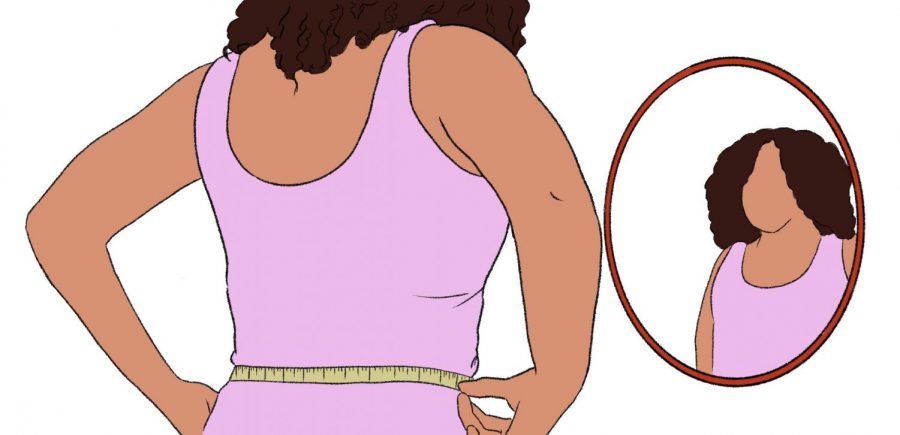I have never gone on a diet before.
I love food far too much that I could never bring myself to restrict what I eat, even if dieting meant the possibility of attaining the highly coveted aspiration of thinness. At times, I have felt not being able to commit to a diet meant I had a lack of discipline and willpower to achieve what so many others have seemingly accomplished.
As I’ve grown older and have had time to reflect, I found that I am fortunate to have such a healthy relationship with food.
While food is something we should be able to enjoy without feeling guilty or ashamed, the $71 billion dieting industry wants you to think otherwise.
The toxic language and attitudes that surround eating has been all too normalized in our culture.
We demonize certain types of food because we have been conditioned to think that way. When we hear words like “fats”, “sugars” or “carbs,” we immediately think these foods should be avoided. In reality, we need each of these food groups to sustain a healthy diet. If we have a cheat meal or cheat day, then we are supposed to double down on our diet for the rest of the week. We label foods as “sinful” as if eating them indicates we have a moral deficiency.
We use words and phrases with positive connotations when describing diets. We will say that we are going on a “cleanse” or detox”. It makes it sound like we are ridding our bodies of this build of waste and toxins, but it’s just a more polite way to say we are restricting our food intake. We label foods as “guilt-free” as a signal letting us know that we don’t have to feel bad about eating it. Some foods are called “superfoods” or “miracle foods” because eating those are supposed to bring us to our weight loss goals faster.
Unhealthy eating habits have become so common that they go unnoticed in plain sight.
When people tell us that they only had a coffee for breakfast and that it was their only meal of the day, it doesn’t raise any warning flags because there’s a good chance that was our breakfast too. When people tell us they are on a diet, we don’t raise any concerns. Instead, they are congratulated — and if their diet leads to weight loss, there is even more reason to celebrate.
On average, 17% of Americans, which equates to over 55 million people, are on a diet at any given time. For most people, the objective of their diet is to lose weight. With every new fad diet that comes out, the dieting industry tells us this is the next best thing we can do to shed that extra weight.
Some examples of popular fad diets right now are keto diets and intermittent fasting. One quick search on any mainstream diet will lead you to countless motivational before and after photos. The dieting industry wants you to believe this works. They want you to believe that you can achieve your dream body by following a diet for a few weeks and then keep the weight off.
The truth is diets don’t work in the long run. Most people regain the weight they lost a year after their diet. There are many factors that explain weight regain. One of the primary causes of weight regain is due to your metabolism slowing down as you reduce your food intake. When you stop restricting your food intake, your metabolism remains at this slower pace. Genetics and lifestyle choices are also major contributing factors.
Dieting isn’t going to transform us into ideal selves and it certainly won’t make us happy. How happy are you really when you scrutinize over every little bit you eat? Eating that extra bite of bread isn’t going to make you gain five pounds overnight, nor will it make you lose five pounds. We need to stop thinking that a diet is going to solve all our problems.
Dieting and diet culture are not sustainable. Restricting food intake to become a healthier, slimmer version of you is actually not that healthy. And on that note, being healthy does not mean being thin.
Food is not a tool to use to manipulate our bodies to look a certain way. Food nourishes our bodies. The healthiest thing we can all do for ourselves is free ourselves from this dieting mindset and realize that we deserve to enjoy this little earthly pleasure we call food.
Catherine Van Weele is a senior studying political science and economics. Follow her on Twitter @catievanweele.








